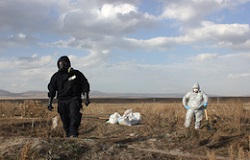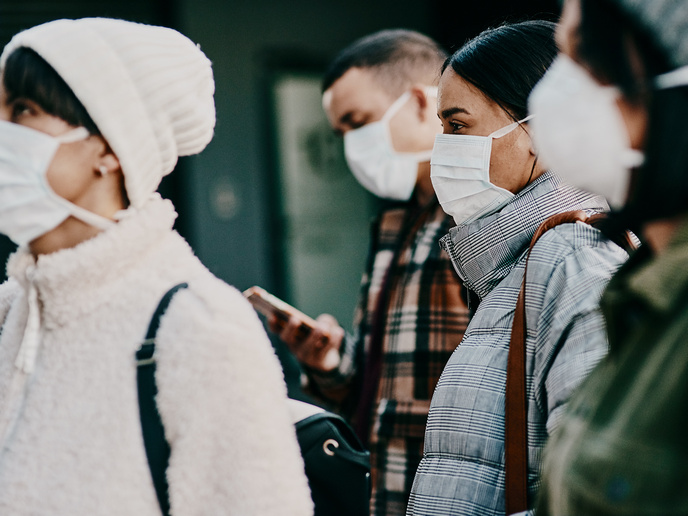Anthrax decontamination using targeted bacterial attack
A lack of effective veterinary facilities and access to vaccines, along with the burial of untreated infected animals, has resulted in the anthrax (Bacillus anthracis) contamination of large areas. This contamination is persistent as spores can survive in soil for hundreds of years. The EU-funded AEDNet project, has taken on the challenge of decontamination by using a specialised blend of viruses. Phages, or bacteriophages to give them their full name, are viruses that only attack bacteria. These are in use already to treat various diseases, but AEDNet is using them in a new way. “The idea of using them to tackle problems in the environment is recent,” says project coordinator Les Baillie of Cardiff University’s College of Biomedical and Life Sciences. “While a few products based on this principle are already available on the market, anthrax decontamination is a novel application.” Health food supplements not so healthy for anthrax spores For the anthrax spores to fall victim to the phages they need to be roused from their dormant form, as spores, in which they are invulnerable to attack. By ‘switching’ them back into their biologically active form, the researchers were able to turn the anthrax from spore to vegetative bacteria, rendering them vulnerable to the phages. The change from spore to bacteria is triggered when there is a ready supply of nutrients. “We have developed a simple approach using chemicals that are available from any corner shop,” says Prof Baillie. “Basically, they are health food supplements.” The solution is compelling: currently systems of decontamination can end up contaminating the environment they are treating. He explains, “At this moment in time there are no approaches that are affordable and environmentally safe. They all depend on extremely caustic chemicals that can cause massive environmental damage.” The phages used are highly specific, only infecting the target bacterium. Dual-use research AEDNet’s work is a good example of dual-use science. “We are dealing with a problem that mainly affects subsistence farmers abroad, helping them to address a tangible agricultural and economic issue. But we are also generating a solution that could potentially be of use in the EU, in the event of a large-scale terrorist attack using anonymous letters laced with anthrax, such as that which occurred in the US in 2001 only shortly after 9/11.” But effective research depends on simple lines of communication with others working in the same domain. While there are a number of phage-based anthrax decontamination projects in the region, prior to the project, no dedicated scientific network existed to facilitate the sharing of best practices and to link researchers in neighbouring countries facing similar problems. AEDNet connected these projects to maximise current investment and to deliver an environmentally friendly decontamination system. Along with institutions in four EU Member States, AEDnet involves partners in Georgia, Turkey and Ukraine, where environmental anthrax remains a threat. As of February 2017, some 50 scientists from the participating institutions had benefitted from the opportunity to conduct research at one of the other labs involved in the project. Prof Baillie explains the project partners are interested in working with potential industrial partners that could manufacture decontamination kits based on their advances. As the ingredients are neither expensive nor complex, he hopes the solution can be offered at a price within the reach of local farmers and authorities.







